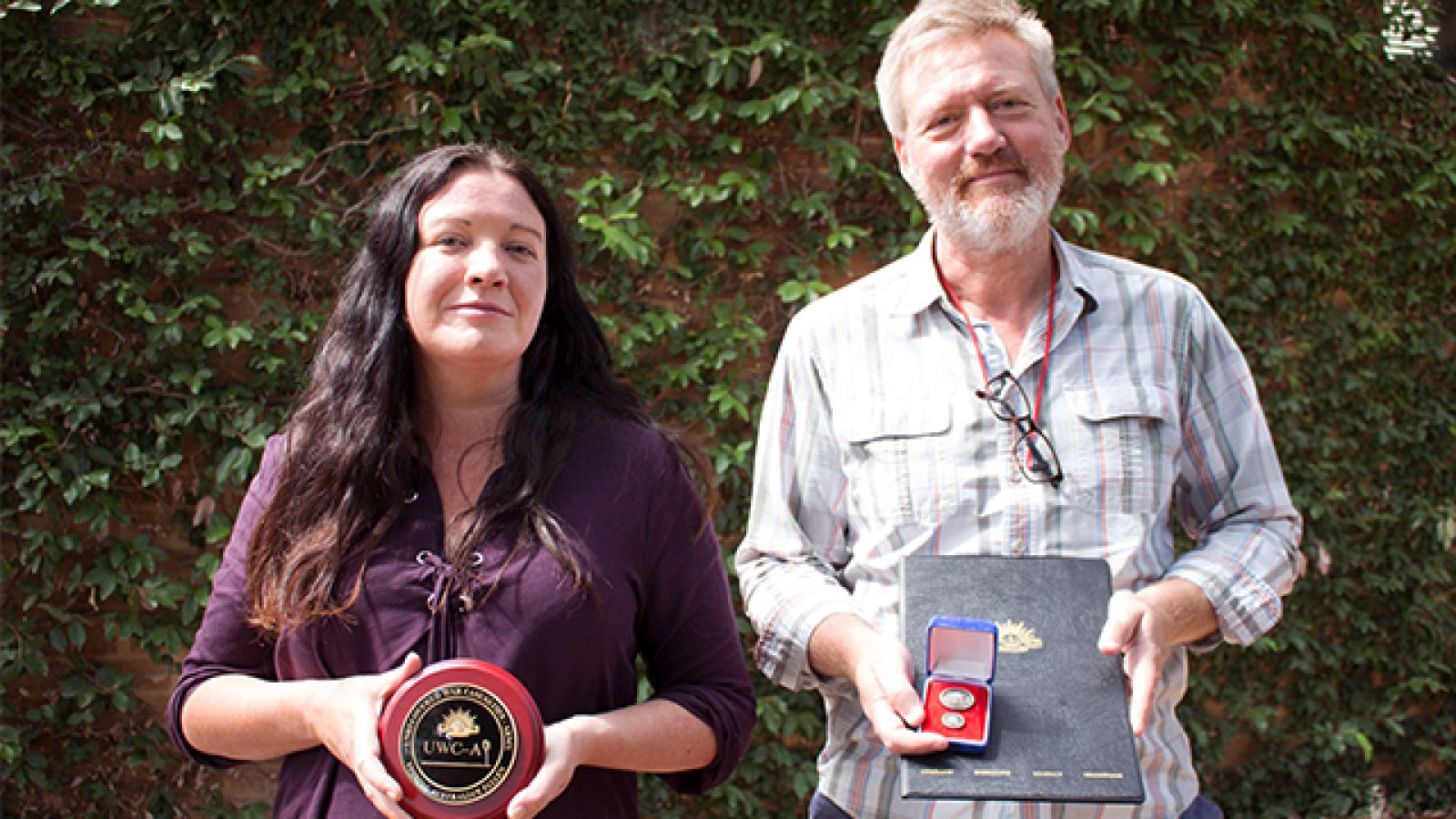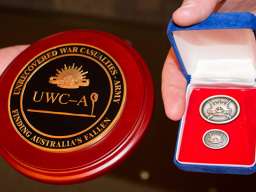ANU scholars recognised by the Australian Army

Felicity Gilbert and Professor Marc Oxenham. Image: ANU.
Two scholars from the ANU School of Archaeology and Anthropology have been recognised by the Australian Army for their voluntary forensic work on fallen soldiers.
The Unrecovered War casualties-Army (UWC-A) acknowledged Professor Marc Oxenham’s contributions with an Army Silver Level commendation and Felicity Gilbert received a recognition.
Professor Oxenham described the commendation as a great honour.
“The honour is not mine alone, with my skills and reputation framed within the opportunities and resources provided by the ANU,” he says.
“This commendation recognises the strong partnership formed between the ANU and Department of Defence – the Australian Army in particular in this instance – by way of engagement and shared commitments to service and community engagement.”
Professor Oxenham, who has been trained, and has extensive practical experience, in archaeological excavation and human skeletal anatomy, began working with the UWC-A in 2009. Prior to then, he had been applying his skeletal anatomy skills for over two decades in a range of pro bono forensic anthropology consulting tasks.
In 2009, he assisted with identifying remains believed to belong to an Australian Air Force crew that had died in a military plane crash during the Vietnam War in 1970.
“Following that initial work for UWC-A, I decided that I would like to commit and volunteer a portion of my time each year to locating, recovering and identifying Australian service men and women that had given their lives for our country,” he says.
This work has taken Professor Oxenham to places including Vietnam, Papua New Guinea, West Timor, the Western Front in France, and various sites around Australia. Recently, he has spent up to a month, and sometimes longer, each year with UWC-A.
“I find it enormously fulfilling and satisfying to be able to provide some small contribution to the recognition and memorialisation of those that have made the ultimate sacrifice,” he says.
“As I’ve been lucky enough to have acquired skills that can be used for the public good, I thinks it’s incumbent on me to use them in that manner.”
Felicity Gilbert, a PhD Candidate in Biological Anthropology, became involved in May last year when Professor Oxenham and UWC-A asked her opinion on a specific case. Since then, she has been analysing remains and working on identifications for UWC-A from the ANU campus.
“I was keen to volunteer for this type of work as it is extremely interesting and I feel it is a way to apply my research and experience to something that is very important to the relatives of those lost in past conflicts and can contribute to the significant work that the UWC-A conducts,” she says.
The field Felicity researches and works in is highly focused on practical application, but she says it’s sometimes hard to apply her skills within in an academic environment.
“So it’s amazing to be able to work on a project that I find fascinating and important and demonstrates the way that I can contribute to something that affects others as well as showing the practical value of the research we conduct.”
